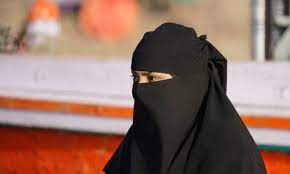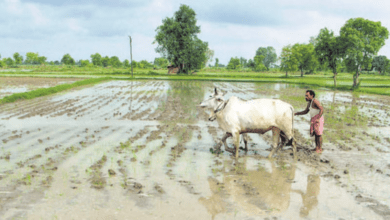I am a politician; what’s in a name?
What role does a name play? Anything we refer to as a rose would smell just as delicious under any other name. So says the leading woman to the main character in the beloved play “Romeo and Juliet” by William Shakespeare. These well-known statements subtly convey the idea that a person’s or an object’s identity is not affected by their name.

Arvind Kejriwal, the detained chief minister of Delhi, emphasizes that he should not be taken lightly as he issues a statement from his barracks that reads, “My Name is Kejriwal and I am not a terrorist.” In a news conference last week, Sanjay Singh, a member of the Aam Aadmi Party (AAP), said that Delhi Chief Minister Arvind Kejriwal, who served the nation “like a son and a brother,” had delivered a message from Tihar Jail. Singh said, “My name is Arvind Kejriwal, and I am not a terrorist.”
Arvind Kejriwal is a skilled publicist who often uses speech and phrases from popular culture to further his political objectives. Likewise, “My Name Is Khan,” a 2010 film directed by Karan Johar, served as the inspiration for these words. In the key parts of this social drama are Shah Rukh Khan and Kajol.
The film tells a fictitious tale in which Mandira Rathod Khan (Kajol), his Hindu wife, experiences prejudice against Muslims after the September 11 attacks, prompting autistic Muslim Rizwan Khan (Khan) to go across the country to see the President. Kejriwal seems to be emphasizing the subject of prejudice against minorities, which the opposition parties believe has increased since Narendra Modi became prime minister, by drawing a comparison between his detention and that of Rizwan Khan’s state.
Nevertheless, further investigation would reveal that Kejriwal is attempting to win over the Vaishya community, to which he belongs, as well as his core base of immigrants and working class people, by drawing comparisons between himself and Rizwan Khan. Despite their reputation for supporting the BJP, Vaishyas in the Hindi heartland have sided with Kejriwal’s Aam Aadmi Party (AAP) in the Delhi municipal assembly elections in 2013, 2015, and 2020.
Vaishyas in Delhi have long felt that the Congress and the BJP, two established political parties, have failed to give them the respect they deserve. The migratory Punjabi politicians, such as Har Kishan Lal Bhagat in the Congress and the BJP’s triad of Madanlal Khurana, Vijay Kumar Malhotra, and Kidarnath Sahni, came to dominate Delhi politics after independence.
It was said in 2013 when Kejriwal was appointed chief minister for the first time that Delhi had a second Vaishya ruler for 45 years. First was King Hemu, whom Akbar had vanquished in the 1556 Panipat II battle. Hemu began his career as a small-time merchant before rising to prominence as a major supplier of gunpowder-making chemicals, or saltpetre, to the Afghan army of Sur, which had overthrown Mughal emperor Humayun.
Subsequently, he gained the trust of the Sur Afghan authorities and was appointed an Army general. After Sher Shah Suri’s death, Hemu took advantage of the Afghans’ defeat at the hands of Akbar’s resurgent Mughal army to seize Delhi and proclaim himself king. Hemu met a tragic end in the Battle of Panipat, felled by a stray arrow, and Delhi lost its first Vaishya monarch.
Returning to the present situation, the Delhi BJP is concerned about how the Vaishyas would react to the chief minister’s incarceration. Kejriwal is well aware of this and is using the victim role. Not only Chandni Chowk, which is holding elections on May 25, but practically all seven Lok Sabha constituencies in Delhi have a sizable Vaishya population.
Vaishyas supported the BJP resolutely in the Lok Sabha elections of both 2014 and 2019. We could then hear, “My name is Kejriwal, I am a Vaishya,” in an attempt to wean them away.







